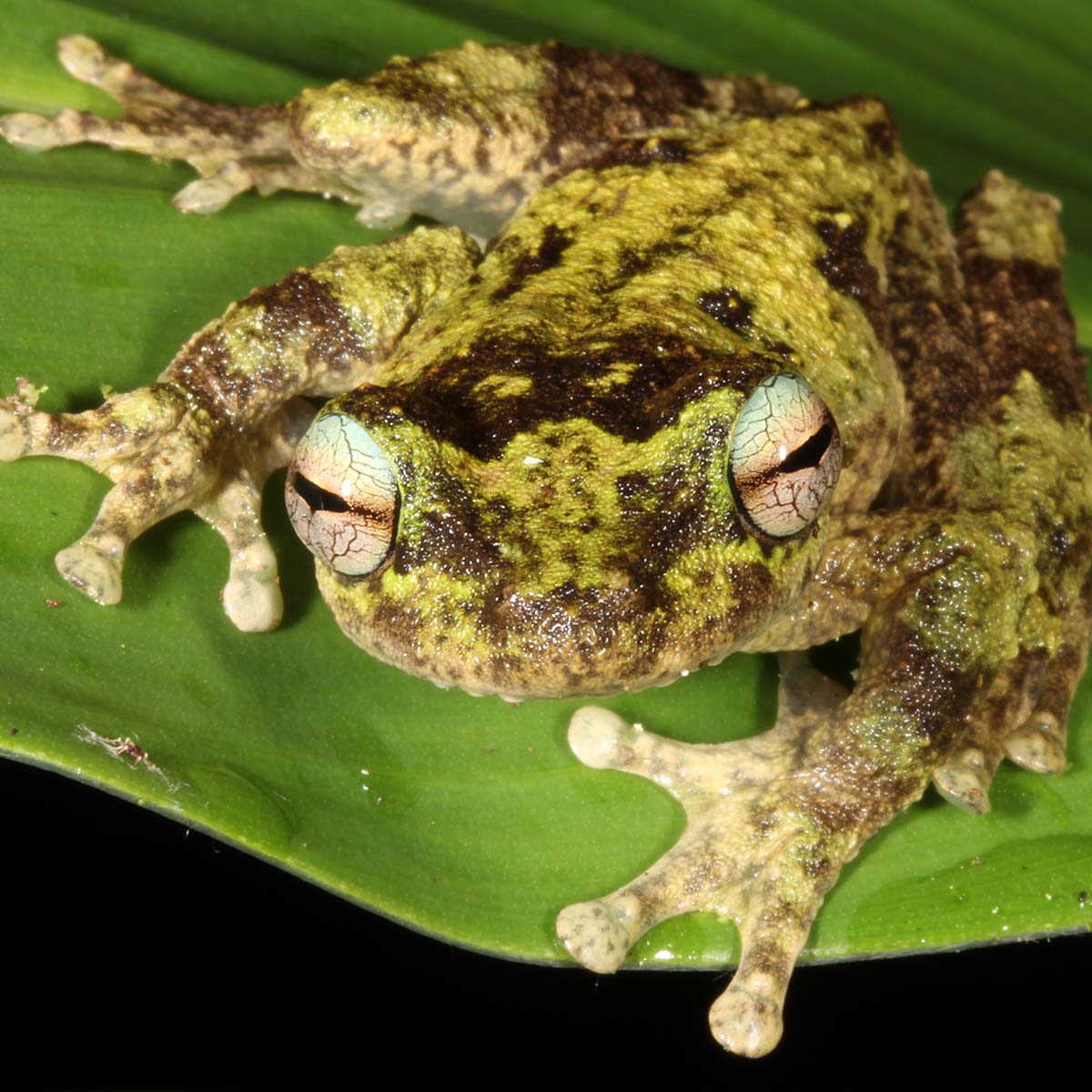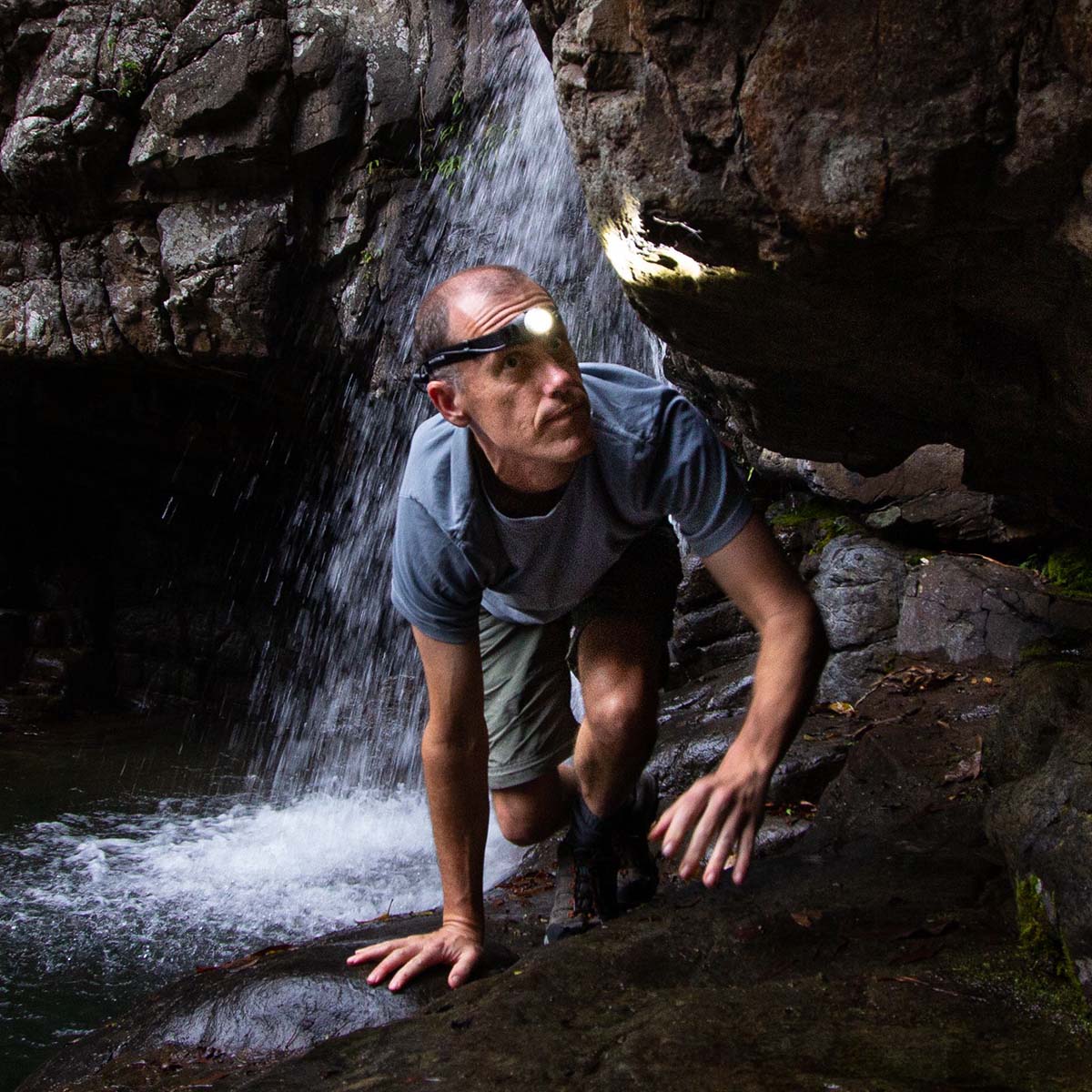Give to JCU Give to Innovation & Discovery Saving North Queensland Frogs
Saving North Queensland Frogs
- Future Students
- JCU Global Experience
- International Students
- Open Day
- How to apply
- Pathways to university
- Virtual Open Day
- Living on Campus
- Courses
- Publications
- Scholarships
- Parents and Partners
- JCU Heroes Programs
- Aboriginal and Torres Strait Islander in Marine Science
- Elite Athletes
- Defence
- Current Students
- New students
- JCU Orientation
- LearnJCU
- Placements
- CEE
- Unicare Centre and Unicampus Kids
- Graduation
- Off-Campus Students
- JCU Job Ready
- Safety and Wellbeing
- JCU Prizes
- Professional Experience Placement
- Employability Edge
- Art of Academic Writing
- Art of Academic Editing
- Careers and Employability
- Student Equity and Wellbeing
- Career Ready Plan
- Careers at JCU
- Partners and Community
- JCU-CSIRO Partnership
- Alumni
- About JCU
- Reputation and Experience
- Chancellery
- Governance
- Celebrating 50 Years
- Academy
- Indigenous Engagement
- Education Division
- Graduate Research School
- Research and Teaching
- Research Division
- Research and Innovation Services
- CASE
- College of Business, Law and Governance
- College of Healthcare Sciences
- College of Medicine and Dentistry
- College of Science and Engineering
- CPHMVS
- Anthropological Laboratory for Tropical Audiovisual Research (ALTAR)
- Anton Breinl Research Centre
- Agriculture Technology and Adoption Centre (AgTAC)
- Advanced Analytical Centre
- AMHHEC
- Aquaculture Solutions
- AusAsian Mental Health Research Group
- ARCSTA
- Area 61
- Lions Marine Research Trust
- Australian Tropical Herbarium
- Australian Quantum & Classical Transport Physics Group
- Boating and Diving
- Clinical Psychedelic Research Lab
- Centre for Tropical Biosecurity
- Centre for Tropical Bioinformatics and Molecular Biology
- CITBA
- CMT
- Centre for Disaster Solutions
- CSTFA
- Cyclone Testing Station
- The Centre for Disaster Studies
- Daintree Rainforest Observatory
- Fletcherview
- JCU Eduquarium
- JCU Turtle Health Research
- Language and Culture Research Centre
- MARF
- Orpheus
- TESS
- JCU Ideas Lab
- TARL
- eResearch
- Indigenous Education and Research Centre
- Estate
- Work Health and Safety
- Staff
- Discover Nature at JCU
- Cyber Security Hub
- Association of Australian University Secretaries
- Services and Resources Division
- Environmental Research Complex [ERC]
- Foundation for Australian Literary Studies
- Gender Equity Action and Research
-
Give to JCU
-
Give to Support Students
- JCU Engineering Futures Fund
- JCU Indigenous Student Support Fund
- JCU On-Campus Accommodation Fund
- JCU Student Hardship Fund
- JCU Experiential Learning Fund
- JCU Orpheus Island Research Station
- JCU Fletcherview Research Station
- JCU Daintree Rainforest Observatory
- Peter Leggat Memorial Fund
- Crozier Prize for Evolution
- Dr Maryanne Balanzategui Prize
- Give to Innovation & Discovery
- Give to Research Stations
- Giving from America
- Impact
- What can I give?
- Bequests & Planned Giving
- Frequently asked questions
- Contact Us
-
Give to Support Students
- Indigenous Legal Needs Project
- Inherent Requirements
- IsoTropics Geochemistry Lab
- IT Services
- JCU Webinars
- JCU Events
- JCU Motorsports
- JCU Sport
- Library
- Mabo Decision: 30 years on
- Marine Geophysics Laboratory
- Office of the Vice Chancellor and President
- Outstanding Alumni
- Pharmacy Full Scope
- Planning for your future
- Policy
- PAHL
- Queensland Research Centre for Peripheral Vascular Disease
- Rapid Assessment Unit
- RDIM
- Researcher Development Portal
- Roderick Centre for Australian Literature and Creative Writing
- Contextual Science for Tropical Coastal Ecosystems
- State of the Tropics
- Strategic Procurement
- Student profiles
- SWIRLnet
- TREAD
- TropEco for Staff and Students
- TQ Maths Hub
- TUDLab
- VAVS Home
- WHOCC for Vector-borne & NTDs
- Media
- Copyright and Terms of Use
- Australian Institute of Tropical Health & Medicine
- Pay review
The mountains of north Queensland have the highest diversity of frogs in Australia as well as the highest number of threatened species. Many frog species in north Queensland are at imminent risk of extinction unless we learn more and act now.
JCU researchers are studying the basic biology of the many critically endangered frogs of north Queensland, to find solutions to the most pressing threats to these species, including chytrid fungus disease, climate change and invasive species.
North Queensland’s rainforest frogs dominate the list of species most likely to go extinct in the next twenty years. This research project aims to change that.


The Frog Research Group at James Cook University is perfectly positioned and equipped to do this research. Led by Australian frog expert Dr Conrad Hoskin, the research team uses a variety of techniques to achieve conservation outcomes. The main focus is obtaining detailed data in the field, along with lab-based studies of breeding and threats in cutting-edge constant temperature rooms in the Science Place labs at JCU. The aim is to learn everything we can about the threatened species in the wild, understand and manage threats to conserve these species in the wild, and to prepare for captive conservation if required.
Results to date have led to finding vital refuges from chytrid disease, the single biggest threat to frogs globally, and have reversed the trend for the Armoured Mistfrog, a species once thought to be extinct. Current projects continue to assist recovery of disease-impacted species. The other big focus is researching ways to safe-guard mountain-top frogs from climate change impacts. Nursery-frogs (Cophixalus species) are now the most threatened vertebrate group in north Queensland, with five Critically Endangered species on the highest mountains. This project is researching the population sizes, biology, and threats to these species, to find ways to conserve them in the wild and in captivity.
Your donation will help JCU's Frog Research Group save North Queensland's frogs by:
- Finding populations of critically endangered and missing frog species in the wild. The research group has a proven record in finding unknown frog populations.
- Monitoring wild populations and collecting data on population trends, natural history and threats. A current priority is purchasing and deploying state-of-the-art field recording gear to do this in a non-invasive way in the wild.
- Devising conservation actions to minimise the impacts of disease, climate change, and invasive species. A focus is identifying and conserving natural refuges from disease and climate change.
- Obtaining the required data to keep and breed north Queensland’s threatened species, should it be required. The focus here is on learning how they live in the wild, and trialling husbandry with common, related species.